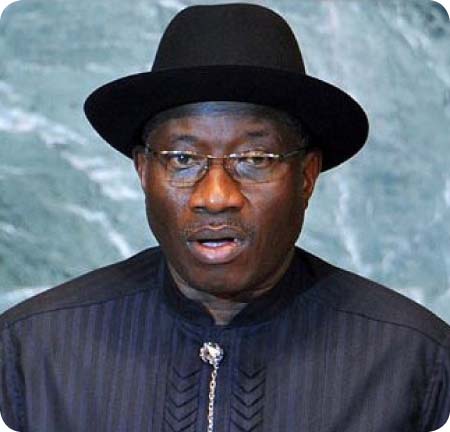ABUJA: Former President Goodluck Jonathan has admitted that the 2014 abduction of the Chibok schoolgirls by Boko Haram will remain a permanent stain on his presidency and a tragedy he will carry to his grave.
Speaking in Abuja at the public presentation of SCARS: Nigeria’s Journey and the Boko Haram Conundrum, a memoir by former Chief of Defence Staff, General Lucky Irabor, Jonathan said the kidnapping of 276 girls from Government Girls’ Secondary School, Chibok, Borno State, is an unforgettable mark of pain.
One of the major scars on my government is the Chibok Girls. As Bishop Kukah said, no plastic or cosmetic surgeon can remove it. It is a scar I will die with, Jonathan declared.
The incident, which shocked the world and triggered the global #BringBackOurGirls campaign, remains one of Nigeria’s darkest chapters. Though some of the girls escaped or regained freedom through military rescue and negotiations, over 80 are still missing more than a decade later.
The Chibok abduction became a defining moment in Nigeria’s fight against terrorism, placing Jonathan’s government under intense global scrutiny.
The administration was accused of being slow to acknowledge the scale of the crisis, with critics pointing to delayed communication, poor coordination, and hesitation in accepting foreign assistance.
Civil society groups, especially the Bring Back Our Girls Movement led by Oby Ezekwesili and Aisha Yesufu, accused the government of politicizing the tragedy. For families of the missing girls, anger and frustration at the state’s response still linger.
Jonathan defended his administration, insisting that his silence at the time was to protect sensitive military operations. Security matters require caution,he argued, suggesting that premature statements could have compromised rescue efforts.
Jonathan also used the occasion to reflect on the evolution of Boko Haram. He recalled that the sect’s insurgency began in 2009 while he served as Vice President under the late President Umaru Musa Yar’Adua.
I battled Boko Haram for five years as President. I thought Buhari would wipe them out quickly, but they remain, he said.
He warned that the insurgency is far more complex than many assume, arguing that it cannot be defeated by military might alone. According to him, Nigeria must adopt a comprehensive carrot and stick strategy that combines security operations with socio-economic solutions.
Jonathan further alleged that Boko Haram’s sophisticated weaponry pointed to external sponsorship: Sometimes they even had more munitions than our soldiers. That does not reflect the actions of hungry villagers.
The Chibok girls’ ordeal exposed not just the vulnerability of Nigeria’s education system in conflict zones but also the weaknesses of state institutions. More than a decade later, the scars remain deep:
-
Rescued girls: At least 189 have either escaped, been rescued by the military, or released through negotiations.
-
Still missing: Over 80 remain unaccounted for, with families clinging to hope of their safe return.
-
Survivors’ challenges: Many of the freed girls face trauma, stigma, and interrupted education. Some returned with children fathered by their captors.
-
Policy lessons: The tragedy raised pressing questions about school safety, intelligence coordination, and Nigeria’s broader counter-terrorism approach.
Successive administrations, including those of Muhammadu Buhari and Bola Tinubu, have pledged to secure the release of the remaining Chibok girls as well as Leah Sharibu, the Christian schoolgirl abducted in Dapchi, Yobe State, in 2018.
Yet, despite military campaigns, foreign intelligence support, and community-based deradicalisation efforts, Boko Haram and splinter groups like ISWAP continue to operate across Nigeria’s northeast, sustaining violence through raids, bombings, and abductions.
For Jonathan, the Chibok tragedy is not just a political scar but also a personal burden. The former President’s words reflect the broader reality that the crisis outlived his administration and remains one of Nigeria’s most pressing humanitarian and security challenges.
As Nigeria continues to battle insurgency more than 16 years since Boko Haram’s emergence, Jonathan’s reflections highlight the enduring failures of successive governments to decisively end the menace.
The Chibok girls remain a symbol of both national resilience and institutional shortcomings a reminder of what happens when state capacity, intelligence, and political will fall short in the face of terror.
And for Jonathan, whose presidency will forever be linked to the haunting image of schoolgirls taken in the dead of night, the scar remains as fresh today as it was in April 2014.



